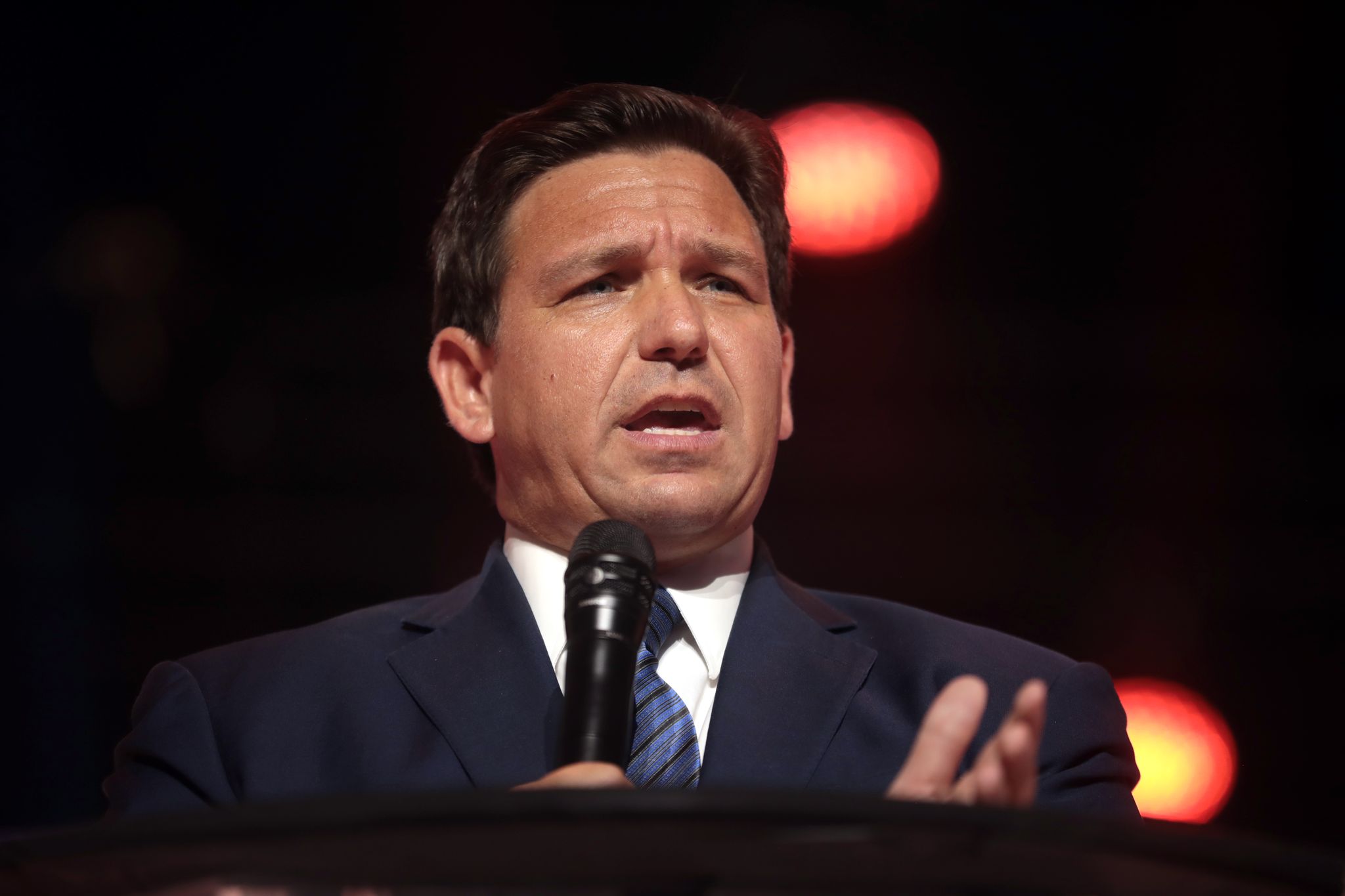Early 2020. Scott Galvin is elated. As executive director of the Fort Lauderdale-based non-profit Safe Schools South Florida, Galvin is ensuring that LGBT children can learn in the most encouraging environments possible.
“It was a lot of after school activities and field trips,” Galvin recalls now. “Once a year, we had Empowerment Day, where we’d bus kids to a central location with speakers and panels and pizza.”
Best of all, “Almost every school in Broward and Dade County had a Gay-Straight Alliance.”
Then COVID hit and closed classrooms. A year later came the now infamous Florida House Bill 1557, aka “Don’t Say Gay.”
“If COVID shut down the classrooms,” Galvin says, “‘Don’t Say Gay’ bolted the door.”
Progress is regressing, Galvin says, in the fight for LGBT rights and recognition in Florida. He doesn’t know what the future holds. But the past might offer some clues. And some motivation.
Early 1977.
Anita Bryant is pissed off.
Despite the former beauty queen’s objections, the Miami-Dade County Commission recently passed an ordinance prohibiting discrimination on the basis of sexual orientation.
Bryant’s fear, she tells reporters, is that the bill will allow homosexuals to work in the same parochial schools her children attend. So Bryant and her husband, both devout Christians, have teamed up with conservative political operatives to form “Save Our Children.” Arguably the first solely anti-gay organization in the country, Save Our Children seeks to repeal the Miami-Dade County anti-discrimination ordinance – because the “sinfulness” of homosexuality will corrupt the young.
“I will lead such a crusade to stop it as this country has not seen before,” Bryant recalls in her memoir “At Any Cost”. She sums up the motives of the gay community and their allies: “What these people really want … is the legal right to propose to our children that theirs is an acceptable way of life.”
Bryant travels the state and grants media interviews, publicly accuses the gay community of actively “recruiting” children. She even waves pamphlets that she claims the gay community have produced that “prove” this recruiting is happening in Florida high schools. Later, these pamphlets are shown to be frauds. But the damage is done.
Within six weeks, Bryant’s campaign gathers 64,000 signatures in support of a referendum on the anti-discrimination ordinance. A few months later, Bryant is triumphant: By a greater than 2-to-1 margin, the public votes to repeal the anti-discrimination measure.
Bryant had won the battle, and children were her rallying cry. But the war was far from over.
After her victory, the LGBT community mobilizes. Since much of Bryant's money and prestige comes from being official spokeswoman for the Florida Citrus Commission – where she appears in nationwide TV commercials promoting orange juice – activists call for a boycott of Florida OJ. They also ramp up the public ridicule, which leads comedians and even Tonight Show host Johnny Carson to poke fun at her.
Mid-1980.
Anita Bryant’s opponents are pleased.
Their efforts to fight back against Bryant’s slurs have won the day.
Less than three years after her victory, Bryant’s reputation (and revenue streams) are irreparably damaged. After a dozen years, the Florida Citrus Commission fires her, saying she has “worn out” as spokeswoman. Her marriage falls apart, and she files for divorce. She cites emotional abuse, but her husband refuses to agree to the divorce – because his fundamentalist Christian beliefs say she’s still his wife “in God’s eyes.”
Ultimately, she retreats back to her native Oklahoma where, today, she’s still trying to explain herself.
“I did what I did out of love,” she’s told people. “They said I created an atmosphere of hate … that was hogwash. That is not who I am.”
Bryant lived long enough to see her signature effort get reversed. It took a while, but on Dec. 2, 1998, the Miami-Dade County Commission voted 7-6 to again ban discrimination based on sexual orientation.
The long war was officially over. Bryant had lost.
But there was one last insult awaiting her. In 2021, Bryant’s granddaughter, Sarah Green announced her engagement – to a woman.
Early 2004.
President George W. Bush is emboldened.
Fighting for a second term as president amidst the controversy of WMDs in Iraq, he decides to attack gay marriage as a way to mobilize his base. It is an easy target.
The Defense of Marriage Act – signed into law by President Clinton in 1996 – defined marriage in the United States as “the legal union between one man and one woman.”
But now DOMA is the topic of great debate. Judges in Massachusetts and California have declared their intent to issue marriage licenses to same-sex couples. More judges and states will surely follow.
In a speech from the Roosevelt Room, Bush declares, “Activist courts have left the people with one recourse. If we are to prevent the meaning of marriage from being changed forever, our nation must enact a constitutional amendment to protect marriage in America.”
Similar to Bryant before him, Bush cites his Christian faith as the basis for his position. But without a direct threat to children, Bush’s plan fails. There’s no will for a national ban on gay marriage. So Bush aims lower.
On Election Day, 11 states approve constitutional amendments expressly defining marriage as a union between heterosexual partners.
But as the second half of the Bush presidency winds down, and with the impending election of a new commander-in-chief, talk again turns to LGBT rights. “Don’t Ask Don’t Tell,” another Clinton-era policy that bans avowed homosexuals from serving in the military, is ruled unconstitutional by the Ninth Circuit Court of Appeals. Again, there are no children to hold up as threatened by the “gay agenda.”
Soon enough, states including Connecticut, Massachusetts, and California legalize gay marriage.
Mid-2015.
Barack Obama is contrite.
He was once publicly opposed to gay marriage. Now, he declares just as publicly, “I’ve concluded that for me personally, it is important for me to go ahead and affirm that I think same-sex couples should be able to get married.”
It’s a sentiment shared by the public and the Supreme Court.
Gallup polling indicates that nearly 60% of Americans now believe same-sex marriage should be recognized – up from 40% when Obama was first elected. And in a 5-4 decision, the Supreme Court legalizes gay marriage in Obergefell v. Hodges. Justices cite a responsibility to honor “personal choices central to individual dignity and autonomy, including intimate choices defining personal identity and beliefs.”
In other words, no one cares about the private affairs of two consenting adults anymore.
But what about the children?
Early 2022.
Ron DeSantis is scheming.
Florida’s Republican governor is up for re-election. He’d won his first term by a narrow 0.4% margin. He also has presidential ambitions.
As he assesses which culture wars to wade into, he realizes – how can he not? – that gay marriage is a fight Republicans have already lost.
Looking further back in history, though, he almost certainly sees what Bryant accomplished by using children. And she was just a former actress and citrus spokeswoman.
He’s governor.
So DeSantis targets schoolchildren.
As Bryant did before him, DeSantis cites “protecting the children” as his call to action. “We’ve seen instances of students being told by different folks in school, ‘Don’t worry, don’t pick your gender yet,’” DeSantis claims in a town hall meeting. “That’s totally inappropriate.”
In a later interview with Christian group Focus on the Family, DeSantis cites what he calls a “concerted effort to inject … gender ideology and sexuality into the discussions with the very youngest kids.”
The strategy pays off. DeSantis wins reelection in a landslide. You know the rest: “Don’t Say Gay,” school bathroom bills, and constant talk about the “indoctrination” of children.
Photo by Gage Skidmore, Wikimedia Commons.
Summer 2023.
Scott Galvin is defiant.
Let’s end where we began. Between 2020 and today, the Safe Schools South Florida executive director has braved a rollercoaster of emotions: using children as his weapon of choice, DeSantis’ attacks on LGBT rights have been formidable.
But just as in the Bryant days, the resistance has been formidable, too.
And it’s worked.
While “Don’t Say Gay” has made it “impossible” for Galvin’s organization to operate in schools – literally, they’re banned from stepping foot on K-12 campuses anywhere in the state – fundraising has been “through the roof.”
Supporters both within and outside his community have been galvanized by DeSantis’s threats, and Galvin says his nonprofit has found new, creative ways to spread their message.
“We just started a partnership in August with Hotspot TV, and we’re going to do a Rainbow Roundtable with panels of kids and adults talking about LGBTQ issues,” Galvin says.
Also in the works: a new podcast, youth-hosted online shows focusing on current events through the LGBT lens, and the ongoing cultivation of a TikTok page that Galvin says has become “very popular.”
Today.
If history repeats itself, DeSantis’ war on the LGBT community – using children as his weapon – will continue for a while longer.
But it won’t win.
The community, particularly in South Florida, is too resilient. History has proven it.
Speaking of which.
It’s possible DeSantis studied Bryant’s historical victory, but he must have stopped reading before he got to the end. Scott Galvin and his supporters will have the last laugh.
RELATED
Brazen Moms Bolster DeSantis Discrimination
Oppressing Teachers, Endangering Kids
Hate Bill Targets LGBTQ College Students
This is a part of a special LGBTQ History Month project. View more stories by visiting outsfl.com/lgbtqhistorymonth.




